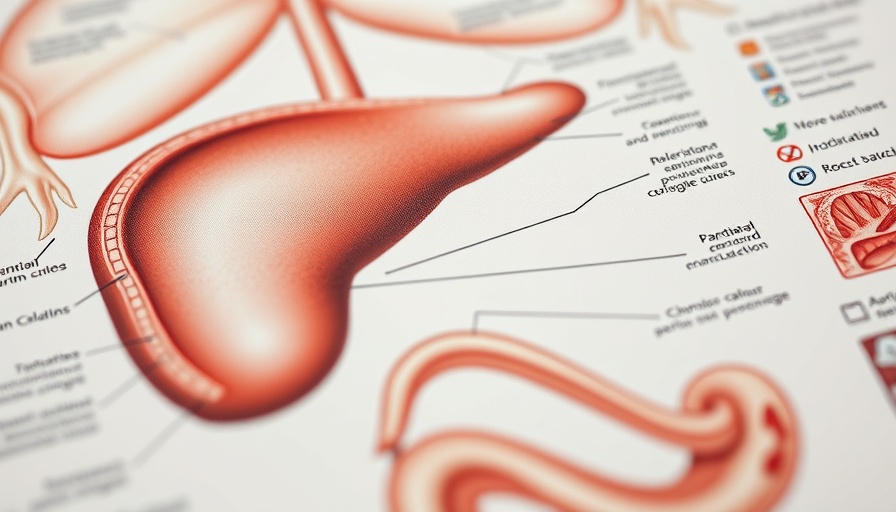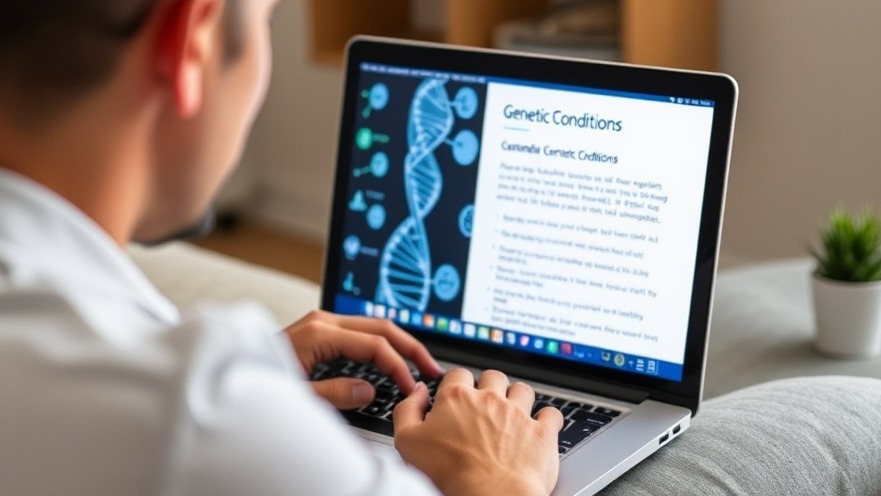
Understanding Pancreas Disease: A Cultural Perspective
For Black and African American communities, the conversation around pancreas disease—such as pancreatitis and pancreatic cancer—often intersects with issues of health disparities and access to healthcare. This unique guide aims to empower individuals with knowledge and resources specifically tailored to their experiences. With underlying factors like diet and socioeconomic status influencing health outcomes, awareness of pancreas disease is particularly crucial. Let's explore how cultural diet choices can affect kidney health and what proactive steps can be taken.
The Significance of Diet in Managing Health
Cuisine from the Black/African American community can play a significant role in health outcomes. Traditional foods rich in collard greens, beans, and sweet potatoes possess numerous health benefits but may also be prepared with high-fat meats or sugars that can exacerbate pancreatic issues. Understanding the nutritional content and health impacts of these foods allows for healthier adaptations. Emphasizing balanced meals could prevent complications related to pancreas disease.
Emotional and Human Impact of Health Disparities
Many individuals in the Black/African American communities face emotional challenges when dealing with chronic diseases. High rates of diabetes, obesity, and associated health issues can lead to increased stress and mental health struggles. Supporting one another through community programs that address these emotional burdens will enhance resiliency among individuals facing pancreas diseases.
Practical Tips for Healthy Cooking Alternatives
While traditional cooking methods are an integral part of culture, exploring healthier cooking alternatives can be beneficial. For example, grilling or baking instead of frying can dramatically reduce fat intake. Additionally, incorporating more vegetables into favorite dishes can improve their nutritional value. Here are a few simple swaps:
- Use olive oil instead of butter for sautéing vegetables.
- Try using spices and herbs to enhance flavors instead of relying on salt.
- Incorporate beans and legumes for added protein and fiber.
These small changes can help mitigate health risks associated with pancreas disease.
Creating an Ergonomic Workspace for Better Health
For digital nomads, maintaining a conducive workspace is essential. Ergonomics plays a vital role in ensuring the body is not overstrained, impacting health including pancreatic function. Here are some ergonomic tips:
- Use a chair that supports the natural curve of your spine to aid digestion.
- Position screens at eye level to avoid neck strain.
- Take regular breaks to promote physical activity, which can enhance overall health.
Adjusting your workspace can lead to improved productivity as well as personal well-being.
Building Community Support Systems
The journey toward managing pancreas disease is often easier when shared with others. Forming support groups within the community helps individuals navigate their experiences collectively. Engaging in discussions about diet, emotional health, or providing mutual encouragement can foster a supportive environment. Online forums or local meet-ups can share resources, leading to informed decisions about healthcare.
Conclusion: Empowering Health Through Knowledge
Understanding pancreas disease in the Black/African American context is essential for fostering better health practices. By addressing dietary choices, emotional impacts, and workspace ergonomics, individuals can take proactive steps to manage their health effectively. Navigating through this journey will not only improve personal health but will also inspire others in the community.
 Add Row
Add Row  Add
Add 




Write A Comment